I see three plausible scenarios for the Russian future:
1. North Korea
2. Imperial Reboot
3. Jubilee
Since Ukraine is resolved to fight, the choice of a Russian historical track ultimately depends upon the resolve of the West. Today I'll outline the North Korea scenario 🧵
1. North Korea
2. Imperial Reboot
3. Jubilee
Since Ukraine is resolved to fight, the choice of a Russian historical track ultimately depends upon the resolve of the West. Today I'll outline the North Korea scenario 🧵
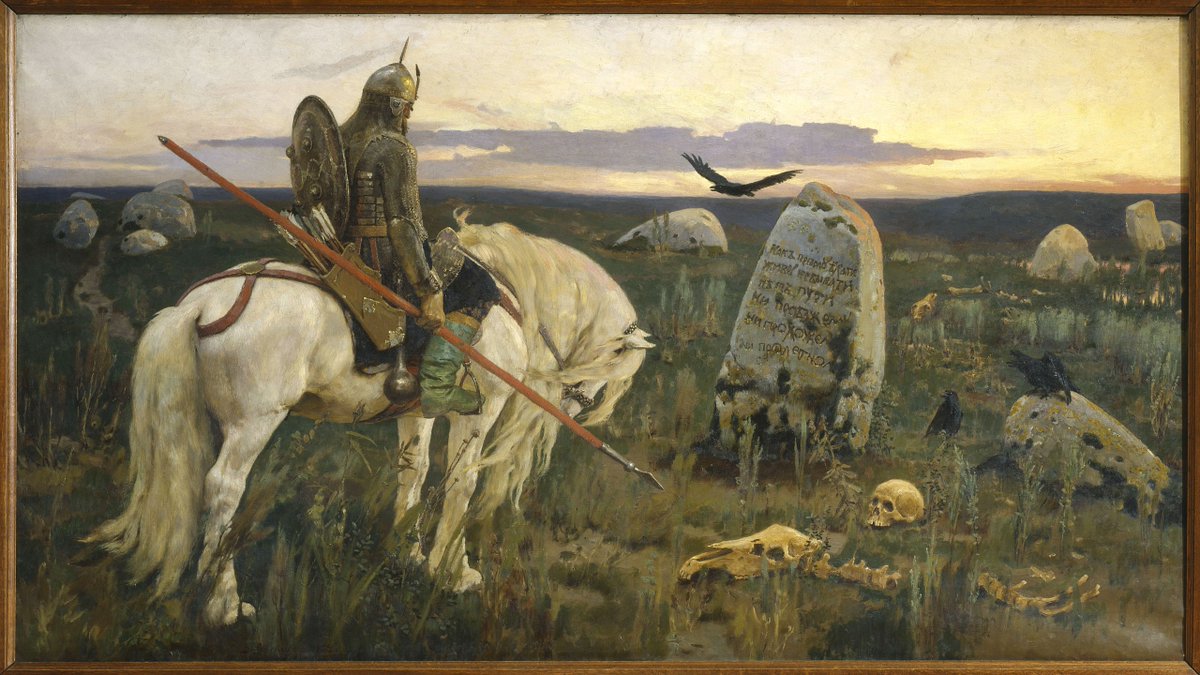
If the West deescalates and Putin stays in power, he will become much stronger and Russia will become more like North Korea. You shouldn't delude yourself, there's no way back to February 23. As a result of "deescalation", Russia won't return to the status quo 

If the West deescalates, it means Putin was absolutely, 100% right to rush Z and all who doubted him were idiots. When Putin decided to fight, officials such as Foreign Intelligence Service chief Naryshkin hesitated. They doubted his decision. Victory will dispel any doubts 

Many compare Putin's Russia with the USSR and Z-war with the Cold War. That's wrong. With the brief exception of 1945-1953 the USSR was always collectively run. Politburo actually discussed policy decisions. The USSR was much more oligarchical and modern Russia is more autocratic 

With the exception of late Stalinism, the USSR was a Party oligarchy. Ruling clique made collective decisions and Politburo protocols showed they were *actually* discussing them. Politburo had real debates. Modern Russia has no debates. Only the Supreme Leader dictating his will
"Deescalation" proponents ignore its effect on the balance of power within Russia. Putin already concentrated enormous decision maker power in his hands, much more than Soviet rulers. Not everyone however, trusts his judgement 100%. Victory will show you must follow Putin blindly 

Consider Munich agreement, 1938. When Hitler manufactured crisis in Czechoslovakia many in Germany doubted his judgement. Wehrmacht and Abwehr officers led by Hans Oster planned a coup aiming to assassinate Hitler and to overthrow the Nazi rule that leads Germany to catastrophe 

Why didn't they do it then? Well, because the West deescalated. Neville Chamberlain chose appeasement strategy. He was afraid of the war and thus gave Hitler concessions to buy peace. However, these concessions very much increased Hitler's authority *within* Germany 

German resolve in WWII should be viewed in the context of Munich. In 1938 Hitler put Germany on stake. Many doubted his judgement, some plotted to kill the madman. But then the West backed off and gave concessions. He isn't a madman, he is a genius. Those who doubted him are mad 

Foreign policy impacts domestic policy. It's insane to ponder how this or that pact will change international balance of power without considering its effect on domestic balance. Every risky move he gets aways with increases the power of a ruler. We doubtet him, but he was right 

I noticed an interesting pattern. Those analysts who casually label dictatorial behaviour as "irrational" never managed to establish a proper dictatorship. They don't know how to build dictatorial power, they don't know how to keep it. They have no idea what they're talking about 
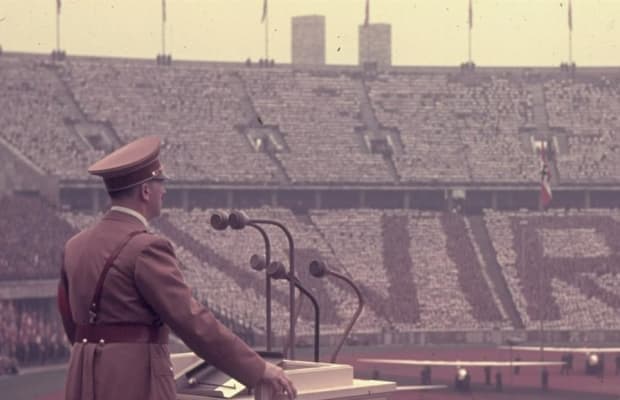
Dictator *must* make risky "irrational" moves to shift domestic balance of power. When he puts the country on stake, many doubt his judgement. But once he wins, he's proven right. He's genius following him blindly is the smartest thing you can do. That's how he builds his power 

Russian people may not have realised this yet, but officials know that Putin has put Russia at stake. More importantly, he put *them*, their lives, fortunes and careers on stake. They're very nervous. Many wish they could return to February 23 and undo all the following decisions 
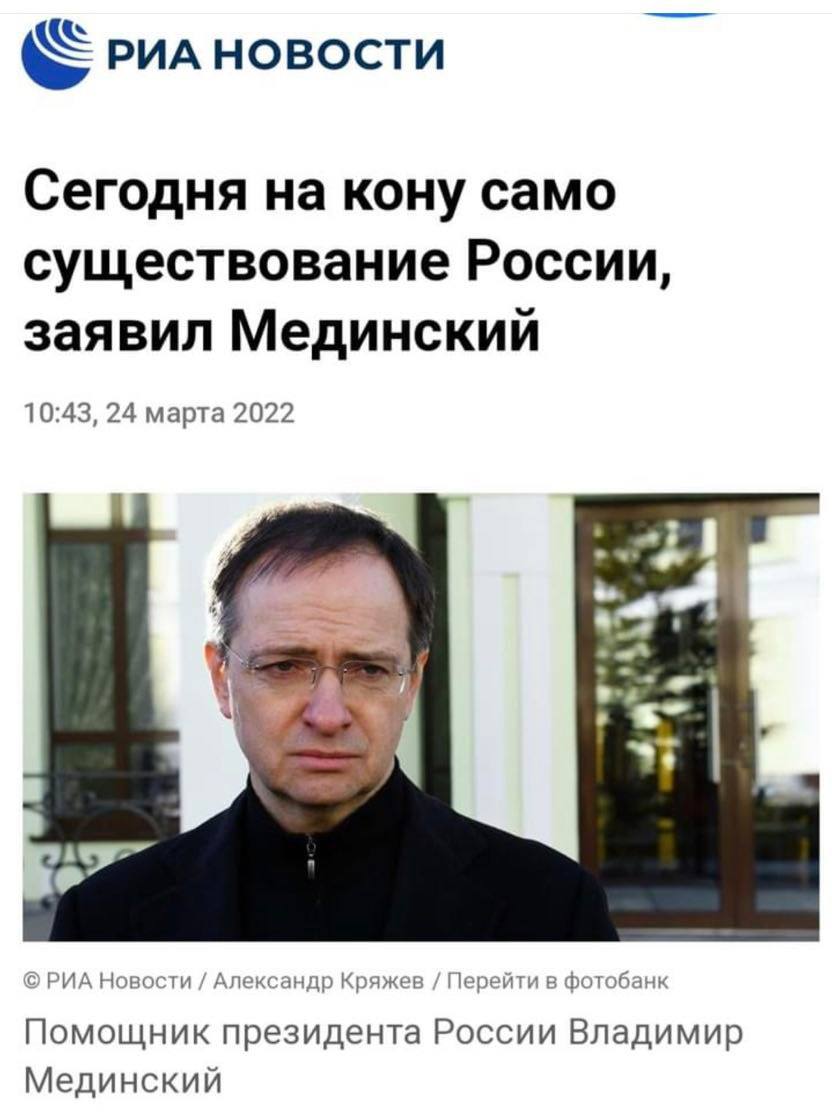
Russia can't make peace with Ukraine because it would mean Ukraine has won. Once Putin declared them as Nazis and promised to destroy them, he can't back off. That would mean he tried to finish them and failed. His judgement is weak. That will break his stand within Russian power
However, any agreement between Russia and the West, any deescalation, lifting of any sanctions will have the opposite effect. Russian authorities don't think they fighting with Ukraine. They think they're fighting with the West. Putin escalated conflict and the West backed off 

Consider Zhirinovsky's speech in parliament on January 18, 2022. It may not reflect the united position of Russian power but it certainly reflects its worldview. We must wage a war to:
A. Defeat the West
B. Using our military superiority
C. And thus solve our economic problems
A. Defeat the West
B. Using our military superiority
C. And thus solve our economic problems
This speech reflects assumptions Russian rulers are basing their policy on. First, Zhirinovsky mentions Russia has "economic problems". It's a slip of the tongue and an understatement. In fact Russia is in a deep structural crisis. It's the oil exporter that ran out of cheap oil 
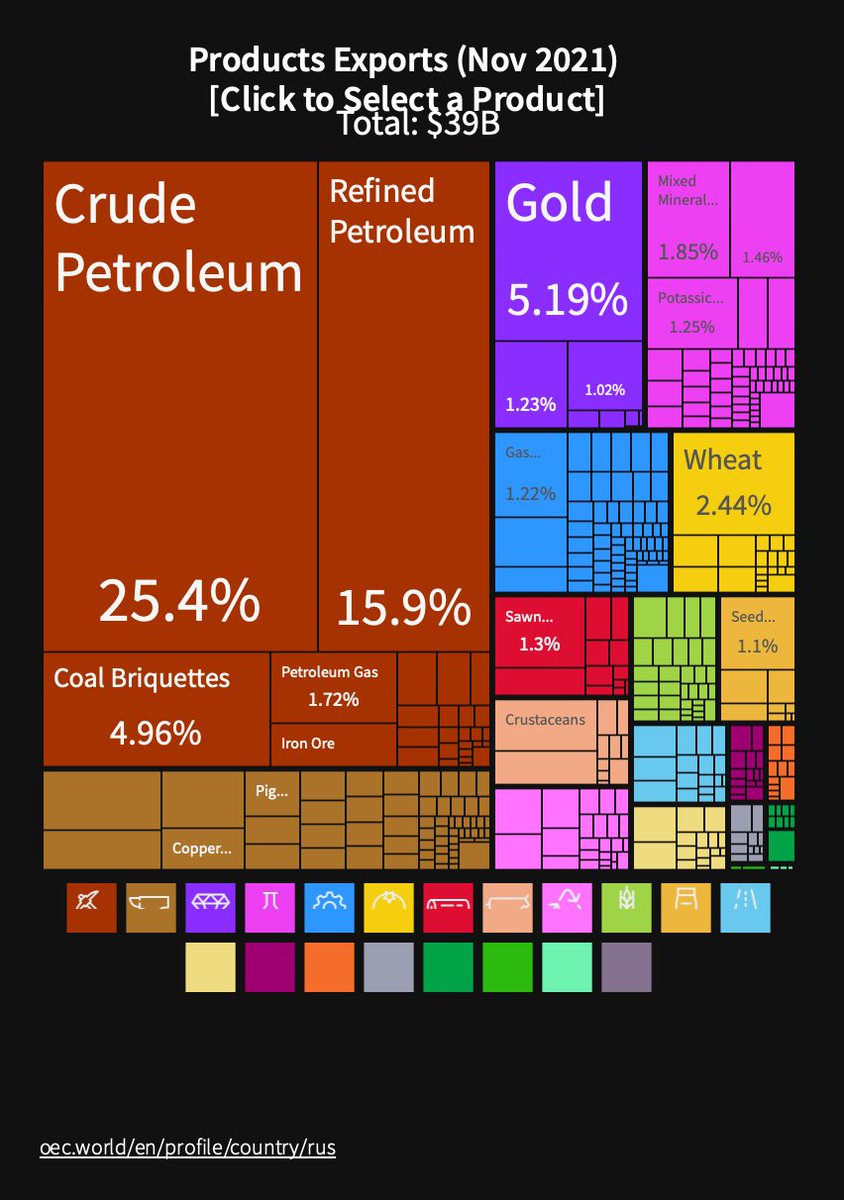
Theoretically Russia has huge oil and gas deposits. But nearly all of them lie in the Arctic and are super expensive to develop. Moreover, Russia lacks technology to develop them alone and has to rely on Western investors and suppliers. See my thread
https://twitter.com/kamilkazani/status/1499855858456567809
Russia is also dependentupon technological import. Russia doesn't produce much and what it does produce, it produces on Western machines, with Western components and technologies. This can't be solved within the current sociopolitical order. See my thread
https://twitter.com/kamilkazani/status/1501360272442896388
Finally Russia is depopulating. It has fewer youngsters and fewer Russians. That's what believers in Russian resilience forget: yes, in the past Russia could afford huge human losses to win wars and industrialise. But back then it was young. See my thread
https://twitter.com/kamilkazani/status/1493602653586264076
These are "economic problems" Zhirinovsky was talking about and which nearly everyone in the Russian ruling class was aware off. You shouldn't underestimate Russian officials, they may not be geniuses. Most of them are not even intellectuals. But most of them are not dumb
Now imagine yourself as Putin or those in power who support him. You know your country is in deep crisis. It's depopulating. It doesn't produce much and is critically dependent on import. It mostly exports oil & gas and now runs out of cheap oil * gas, the rest is in the Arctic
Russian leadership more or less knew how badly Russia is doing in industrial production, in natural resources extraction, in demography. They knew the ship is sinking. But they couldn't know how bad is situation in Russian army. Why? Because no expert could know that 
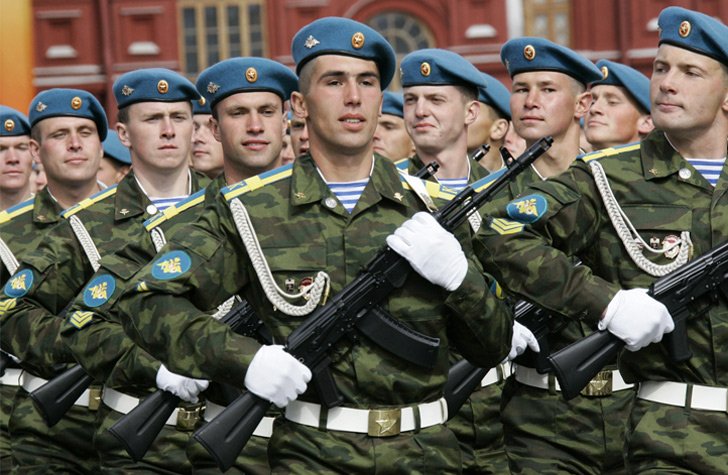
The awful situation in Russian economy was a common knowledge. Many knew including those working for the Kremlin. Consider deputy PM Belousov who briefly worked as an acting Prime Minister. He is an economist who made very grim assessments of Russian economy and demography 

Those in power could have quite accurate and reliable data on situation in Russian economy. Because such data is common knowledge. Everyone could easily get verifiable info on it and many of those who did, made it into the power
Ministry for Economic Affairs is very meritocratic, very open and is actively headhunting. They tried to invite me for a job interview five times in 2021 (= evidence of their high reasoning abilities). They're targeting people with Western education, tech companies background etc 

Putin has employees who accurately understood the economic situation and he read their briefs. We have every reason to believe that Putin and those around him had access to the reliable data on Russian economy and demography. He knew ship is sinking, so you have to do something 

But nobody could provide Putin with accurate reliable data on the capacities of the Russian army. Because such data didn't exist in the first place. Russian army has not been tested in battle against big regular armies since 1945. Ukraine 2022 is the first experiment since WWII 

Since WWII Russian army has been involved only in police operations against civilians in Hungary and Czechoslovakia, or guerrillas like in Chechnya and Syria. But Russia has no experience of fighting regular armies. 2022 is an experiment. See my thread
https://twitter.com/kamilkazani/status/1499377671855292423
Putin had reliable data on economy. He couldn't have such data on army performance in a real war cuz such data didn't exist. He relied on opinions of generals and experts who believed in easy victory. In this respect Russian experts were not much better than the Western ones 

When I say Putin couldn't have reliable data, I mean reliable *aggregated* data. Ofc he could talk with regular soldiers, get some anecdotal data and extrapolate it. That would be much better than "listening to experts". Consider interview of Wagner mercenary who fought in Syria
Putin didn't collect and extrapolate the accurate anecdotal data from the frontline soldiers. Instead he relied on inaccurate aggregated data provided by generals and experts who were just wrong like most experts around the world. NB: do not ignore experience of frontline workers 

This asymmetry in data accuracy explains Putin's decision to rush Z. He knew how badly is Russian economy doing, but he believed in might of the Russian army. So he thought that being in an economic decline, Russia still has military leverage which would be silly not to employ 

I wanna clarify, it wasn't Putin's personal delusion. It was a Russian mass delusion. They greatly overestimated Russian military capacities. Compare the tone of Putin's chief propagandist Solovyov in late February and in late March
Before Z-invasion, Russian nationalists saw military might as a leverage and openly discussed that. Let me quote the following article by Sputink and Pogrom - the major nationalist media. Read it, it's very telling - it's the ideology of aggressive policy based on mercenary army 

"Russians know and love doing two things - the war and the literature. Whatever we do that doesn't involve either war or literature almost always turns out badly. Many Russian institutions are heavily militarised for this very reason" 

"We have a destitute people which doesn't incline to idealism. Russians love money very much and will kill anyone for money - we saw this in 1990s... It's a boring northern country, you can cheer yourself up only with a "beautiful life", abundance, prosperity" 

"Plan of any military campaign:
- Soldiers get condo + Zhiguli
- Junior officers - large condo + foreign car for 20000$
- Senior officers - townhouse + foreign car for 40000$
- Generals a cottage + foreign car for 80000$
- Minister of defense - estate + foreign car for 80000$"
- Soldiers get condo + Zhiguli
- Junior officers - large condo + foreign car for 20000$
- Senior officers - townhouse + foreign car for 40000$
- Generals a cottage + foreign car for 80000$
- Minister of defense - estate + foreign car for 80000$"
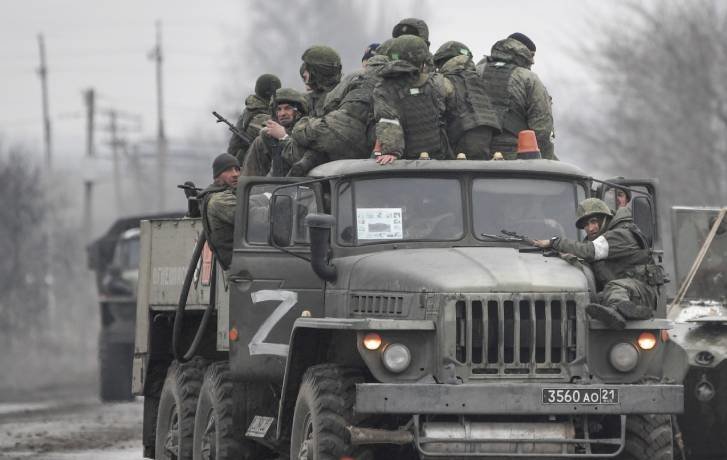
"That's it. We don't need anything else. What Ukraine? What North Kazakhstan? Start using "South Ural" instead. Audi A4 and new condo are at stake. These guys will conquer even Australia. Where do we get the money from? Oil, gas, trophies. We don't even need patriotic propaganda" 

"Why are you occupying Constantinople? You can't respond: "I want to eat black caviar and ride on Cadillac with top models". So we will talk of the cross over Hagia Sophia, Orthodoxy. That's good enough. Any justification is good enough including even the Fifth International" 

"They criticise Russians for lack of idealism - Russians will sell their motherland for cash. I actually agree. But it also means that fRussians would do whatever with *others'* motherland for money. They'll swim in gold like Scrooge McDuck and get status of honourable warriors" 

That's a very telling publication. Western midwits make up BS justifications for Z-invasion and invent idealistic motivation for Z-invaders. But according to Russian ethnonationalists it's just a mercenary army that will kill whomever for money. Source:
sputnikipogrom.com/politics/9147/…
sputnikipogrom.com/politics/9147/…
When we talk of Russian ruling class, we are talking about not dumb, highly pragmatic and highly opportunistic guys. Most of them are already doubting Putin's judgement. They may not tell it or tell it in a very politically correct way. But they're in doubt. He put them on stake 

However, if Putin wins, and deescalation with the West means his victory, it will greatly shift the balance of power within Russia in his favour. Yes, Russia as a whole will be weaker. But Putin himself much stronger. His mythos and Russian imperial mythos will grow stronger 

What changes should in expect in Russian society, if Putin wins? First, ruling class will not be able to doubt or question his authority. Within Russian imperial mythos victory is all redeeming and the inability of the West to crush Putin means his victory 

It will retrospectively legitimise all the Putin's record. Soviets did this trick in late 1960s. Dekulakization, industrialisations, purges were necessary to win the WWII. Victory is all redeeming. And Putin's victory against the West will retrospectively redeem everything, too 

Much of Russia believes in Putin. Their faith will grow much stronger. Many don't believe in him. They'll either get ashamed of their previous views, repent and become stronger and more unquestioning believers or will just shut up and live in silence
Russia has already changed. Major oppositional media were either closed or lowkey stopped working. Any institutions who tried to question Putin are being quickly dismantled. This encroachment will only increase after his victory. No independent speech will exist in new Russia 
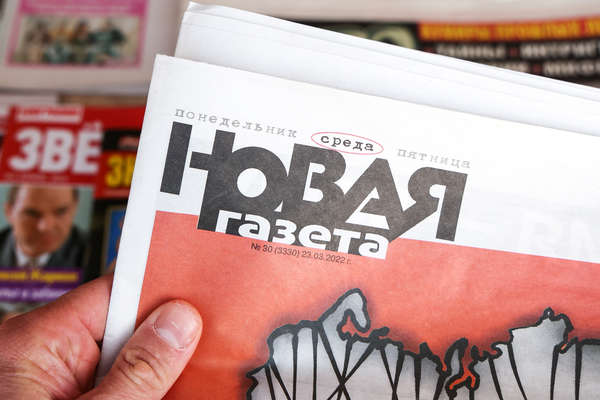
Russia will become much poorer but its rulers might even like that. Consider this paper by now Deputy PM Belousov. The growth of middle class is problematic:
- they buy expensive imported goods
- they increase cost of labor, demand more labor rights
- they try to emigrate
- they buy expensive imported goods
- they increase cost of labor, demand more labor rights
- they try to emigrate

Russian elite doesn't want Russians to be rich. They view poverty as a competitive advantage. If they're poor, we can keep wages low, decreasing cost of production. If they are poor, they can't buy expensive foreign goods worsening our trade balance. Finally, poor won't emigrate 

Demise of private sector is a problem only in short perspective. In a long term it's a win win situation. Private sector destroyed, the emigration routes closed, people will have no choice but to work for those high in dominance hierarchy for food. That's a competitive advantage 
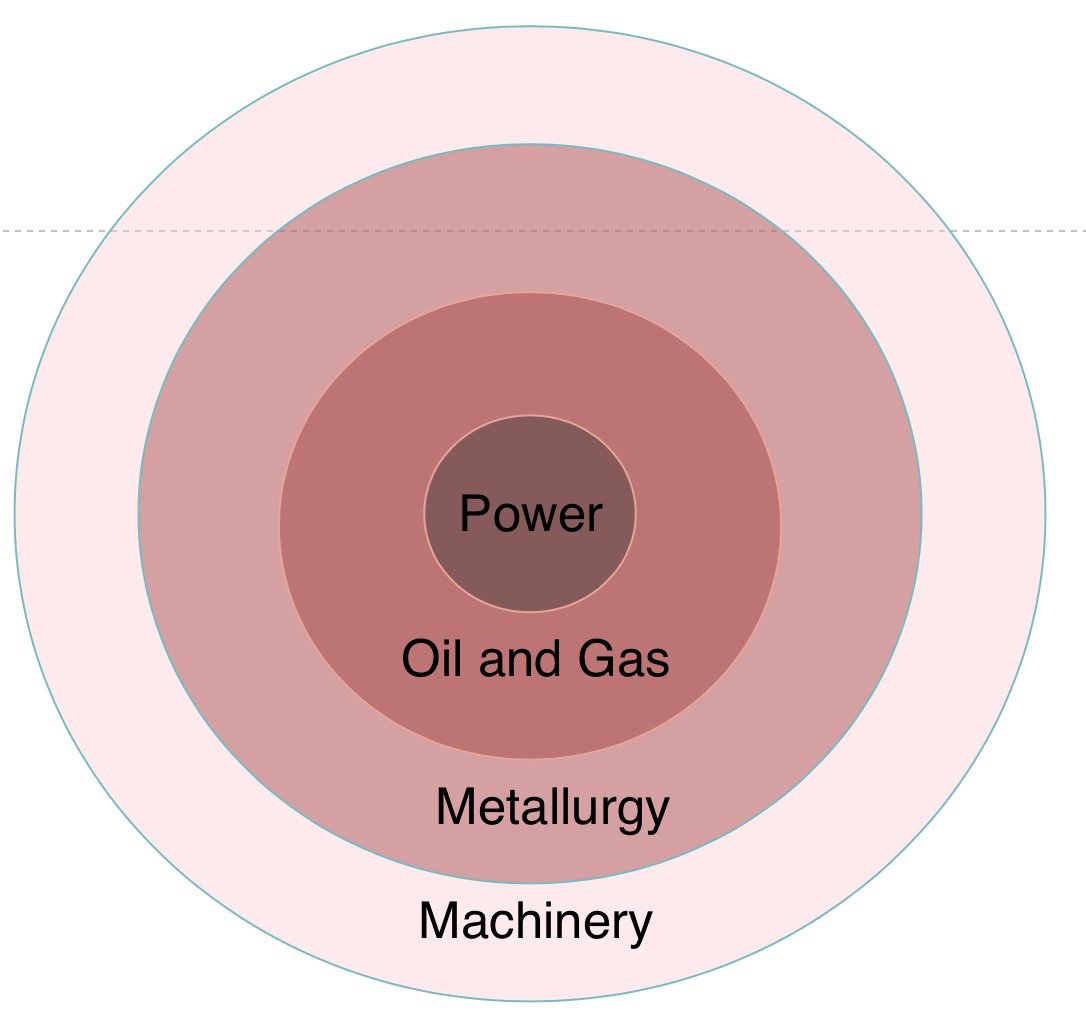
Another advantage of poverty is that you can easier find recruits for your imperial wars. Many are surprised by Russian parents refusing to help their kids who were capptured in Ukraine. But if you think of it, it makes total sense. These families view their kids as a resource
Parents all around the world sell their kids to prostitution and it surprises no one. These families view their children as an economic resource which must earn money for them, this way or another. That's exactly how much of the Russian poor view their children
Why soldiers' families aren't protesting? Well, they are lavishly compensated. You can now get 170 000 salary for enlisting into army. That's huge money for province with 20 000 salaries. Putin also pays over 7 million rubles to families of soldiers killed in Ukraine. A good deal 

The only case of families protesting agains the war in Ukraine I could find, happened in ethnic province - Karachaevo-Cherkessiya. Six women from 29 to 61 years old blocked the road demanding to disclose fate of their kins sent to Ukraine. They were arrested of course 

Russian provincial families are losing their sons in Ukraine. But they won't protest. Their son died as a hero + they get a payout. Great deal. Moreover, since their son died "for Russia", we must keep fighting till the victory. We don't want our boy to die in vain, do we?
Cynical it may sound, death of a son in Ukraine is a good deal, because:
1. He is an economic resource anyway
2. War is a good way to cash out this resource
It's not that his death is a win, it's that once he's dead or captured you just write off the lost resource
1. He is an economic resource anyway
2. War is a good way to cash out this resource
It's not that his death is a win, it's that once he's dead or captured you just write off the lost resource
Consider that men in Russia don't live too long anyway and the lives of men from poor towns and countryside are especially short. You can verify it walking through a small town in Novgorod or in Ivanovo. Yes, they die, but they wouldn't live too long anyway. Not much of a loss
I understand that this account may sound dark and even dehumanising. It's not. Parents who sell their kids into prostitution are very, very human. It's just they have no honour. Modern culture tends to idealize and glorify poverty, while in fact there's little glory down there
As Chesterton wrote "the whole point of property is that in that alone can be naturally nourished the sentiment of honour". And vice versa: where there is no property, no sentiment of honour can be nourished. It's a stable equilibrium. This order can last for centuries. End of🧵 

• • •
Missing some Tweet in this thread? You can try to
force a refresh





